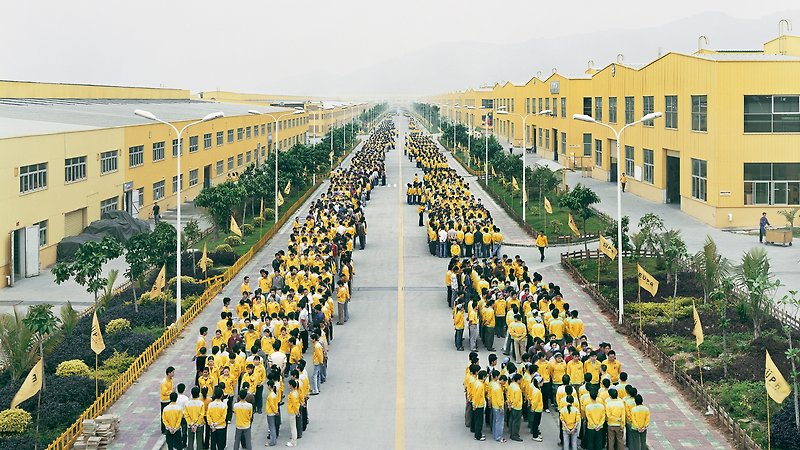Staggering, unconventional doco of Canadian photographer Edward Burtynsky who marries art with environmentalism in monolithic portraits of industrial landscapes such as China's Three Gorges Dam.

A truly unsettling look at contemporary existence [and at] our mania to control and repackage our environment.
Screened as part of NZIFF 2007
Manufactured Landscapes 2006
Jennifer Baichwal’s staggering, unconventional documentary follows celebrated Canadian photographer Edward Burtynsky on a tour of Asia, where he trains his lens on monuments of industrialisation such as China’s Three Gorges Dam. Burtynsky’s luscious, monolithically scaled portraits of industrial landscapes – factory workers lined up to infinity, giant ships eviscerated, massive recycling dumps, expansive strip mines – have won him an international reputation. His goal is to portray humanity’s relationship with nature in its relentless pursuit of progress, drawing our attention to such urgent topics as global warming and peak oil. — Bianca Zander
“Art and environmentalism collide in Manufactured Landscapes, with results that are more fascinating for their ambiguity… In his work, Burtynsky aims to remain morally neutral. Although in voiceover interviews he muses about the consequences of consumerism, behind the camera he insists that ’this is what it is’ – beyond simple right and wrong, a fact of existence that requires new kinds of debate. A large chunk of the movie is devoted to a place where these issues are particularly relevant: China, where the shift from agricultural to urban life is unprecedented in world history. Burtynsky studies the Three Gorges Dam, the largest(by a wide margin) ever built by man, and Shanghai, where traditional dwellings are vanishing to make way for high-rises… The result is a highly unusual viewing experience that stimulates the senses and the conscience simultaneously. Burtynsky may be reluctant to pin his images down by attaching morals to them, but viewers will be unable to ignore the troubling questions they present.” — John DeFoe, Hollywood Reporter